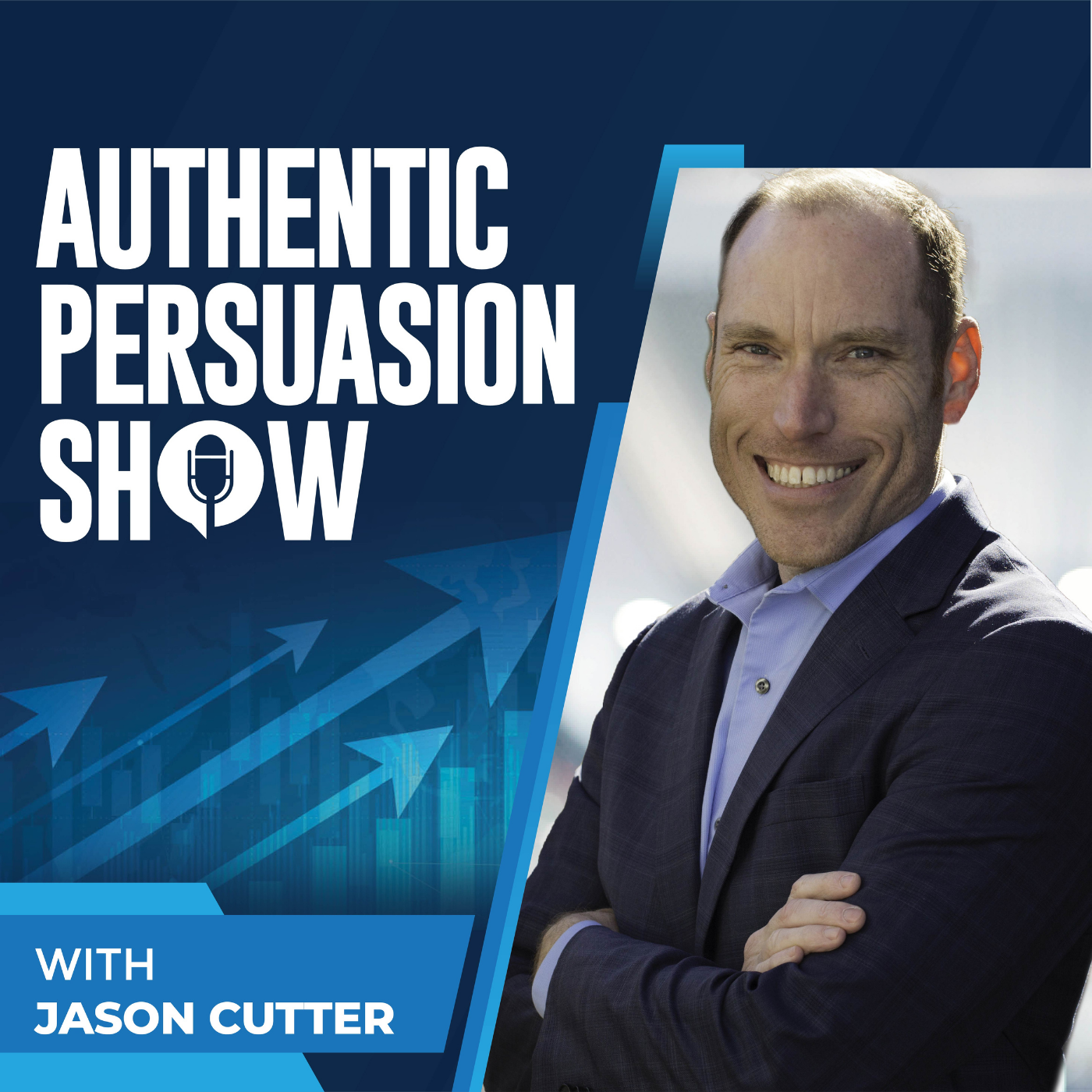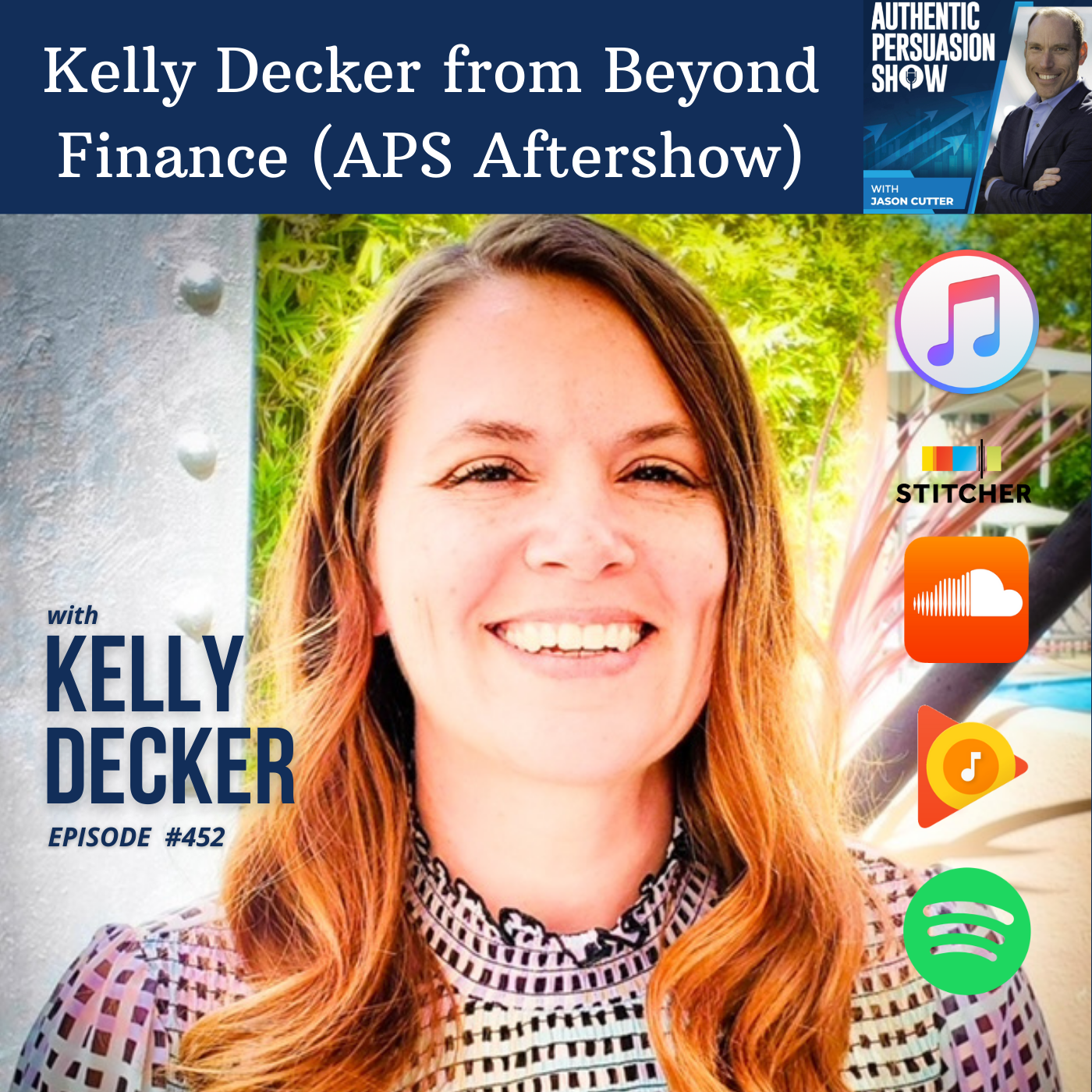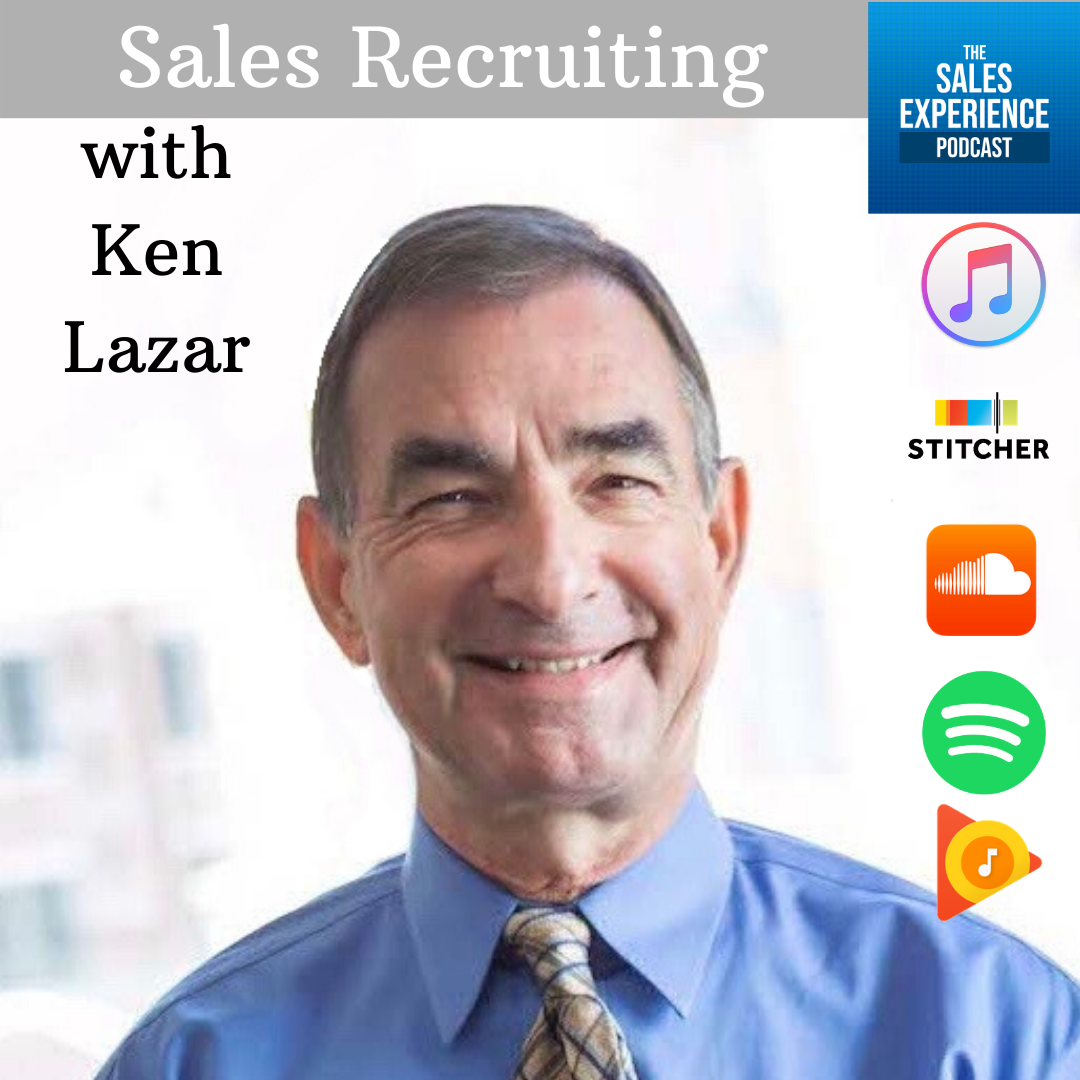Episode Transcript
[00:00:00] Speaker A: Welcome to the authentic Persuasion show. On this episode I want to replay part of a previous show. Maybe you heard the original full length episode and this could be a great refresher and reminder. Or maybe this is your first time hearing this content and the timing could be just right to help you leverage authentic persuasion today in your role, no matter what. Here's to your success.
This is the authentic persuasion show.
The hope step.
[00:00:27] Speaker B: It's so important to make sure you focus on the fact that it's all about them, literally all about them. You've got to make every feature, every benefit relative to what it is they said they wanted and why. Why do they want or need what it is that you're selling? And then this is where you answer it. This is where you solve that. This is where you focus on the things that they want and why for them, not everybody, for them. And I can't say that enough. That is one of the biggest things. Differences in my opinion, as a sales professional versus a sales person. And if we look at classic sales, it's all about themselves and their motivation and thinking everyone wants it. A professional, in my opinion, is about solving someone else's problem, helping them achieve a goal and doing it for them and helping them for their reasons, right? So that's the big key. If we think about the doctor analogy once again and we think about the fact that your doctor is not going to necessarily tell you all these features and benefits of a surgery or a medication or whatever it might be, right? Whatever their prescription is based on your diagnosis, they're not usually going to go on and on about all these ancillary benefits or facts or features or stats or benefits unless it applies to you, unless it's a warning, right? So they've got to warn you about side effects. But other than that, it's like, okay, when you do this surgery, we're going to fix your broken arm, but it might also do this. And also we found like this is cool too. And this is like they don't, they just say, hey, I know what it is that I diagnosed. Here is the prescription, let's go.
And if it's important to you, maybe here's some other things too, right? Like I can imagine in scenarios where the doctor says, okay, here, here's what we're going to treat. Here's what we're going to do. By the way, if it's important to you, some other things I noticed with patients is it also helps with this, this and this. I don't know if that's going to matter to you. It may or may not. But just know, sometimes people experience this, this and this as positive benefits as well, right. When done right. That's what you can imagine in that conversation. That's what I want you to do. That's what I want you to focus on is, is that aspect, that part of the conversation in this hope step, and this one is huge. This is so important. If you nail the rapport, the empathy, the trust and the hope, specifically this one, if you do everything leading up to this point and you nail this hope step, then there's really no reason somebody should completely object to moving forward, right? Like if you've actually given them the right prescription based on the diagnosis you've made for their situation, then maybe there's some logistics stuff. Maybe they don't have the money or maybe they need to get an agreement from another party, or maybe some other things like that that are more road bump, road speed bumps than anything else. But fundamentally, nothing should stop you at that point, which is what we're going to talk about next week when we talk about the closes, the other big thing. And this is why this is so important, this process, this procedure, how you handle it, why you do it the way you do it, even everything leading up to the hope step that you need to know, that you have to have in your mind, like in your pocket, ready to go as far as why they need or want what it is that you're selling is because, and I'm going to talk about it next week. I'm going to talk about two things. One is the two closes that I think are the most important that this phase or in this sales process to focus on. And of course, there's other closes that matter. I don't want to dismiss that, right. But I know that those other ones become less important when you do things in a certain way. But the other part that I'm going to talk about next week, too, is what I call, and it's in the book, it's chapter 16. And selling with authentic persuasion, which is avoiding the follow up trap. We all know what that feels like. When you call somebody who seemed like a hot lead, a good prospect, it seemed like they were going to move forward with things. It seemed like they were interested and excited, and then next thing you know, they're gone. I call it the prospect witness protection program. It's like they disappeared off the face of the earth. They changed their phone number, changed their identity, moved to another city or state, and they literally doing everything they can to avoid talking to you and interacting with you. And there's a couple reasons why that happens. And then there's some important things you can do to help avoid that. Now, you can't always save it. If your pipeline is stuck in the follow up trap where you're calling people who you should have moved forward or could have moved forward and they're not responding, there's very little you can do to fix the damage that's done, essentially. But moving forward, there's some things you can do to really help avoid that moving forward.
![[745] The Two Crucial Steps](https://episodes.castos.com/salesexperiencepodcast/images/1712993/c1a-4d8w-ddk54zgjh1w-cfrby1.png)


